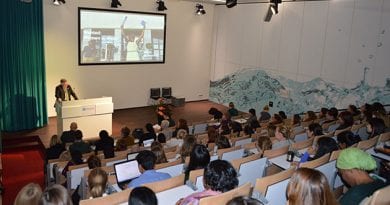ADHD children and friendship problems: tips from i-paidi
Kids with Attention Deficit Hyperactivity Disorder (ADHD) usually present difficulties in creating and holding friendships, a constant cause of anxiety and concern for their parents. Why? Because their children are stigmatized as the “black sheep” in companionships due to their particular behaviour and the difficulty to be accepted and embraced by their peers, in group activities. Some kids simply aren’t good listeners. Others drive away potential friends by their impulsivity — blurting out unkind comments, for example. In addition, kids with ADHD often invade personal spaces and play too rough — all of which makes it tough to keep friends.
As children with ADHD can not, on their own, realize the situation, put an end to this vicious circle and overcome this crucial complication, parents are practically the ones who can and should stand by them and support them. As friendships are a necessity for obvious reasons, parents may help their kids make friends. Making and keeping friends requires hundreds of skills — talking, listening, sharing, being empathetic, and so on. These skills do not come naturally to children with ADHD.
Towards strengthening parental support, i-paidi suggests the following tips:
- We support our children by embracing our child’s differences, always emphasizing on their abilities and good characteristics and praising them for their efforts every inch of the way.
- We arguing by exclusively using positive statements
- We reward the proper behavior – regardless frequency and importance.
- We create a favorable and supporting environment for discussions and opinion exchange.
- We discuss with them how they feel, how they sometimes succeed in relationships and other aspects of their life, what difficulties they face, what alternatives they may have, what they want/desire, how they purchase their goals, what they expect and what they need most.
- After discussing about their concerns, we express our sympathy about what went wrong and encourage them to try to change their behavior next time.
- We definitely avoid discouraging words and strong reprimands.
- We focus on gently giving practical advices/suggestions
- We challenge the children to view any situation through the position of an observer, as good relationships require us to be aware of other people’s thoughts and feelings
- Physical exercise, and especially team exercise, helps children with ADHD to expand their social skills by acting as team members. Athletics ensure physical health. Despite that, an ADHD child when found within a structured framework of a “team game”, with rules and specific “commands” from the properly specialized and experienced coach, feels liberated. He gradually coordinates thought and action more effectively, realizes his acceptance as a team member, cooperates with his teammates, shares positive and negative emotions and gets common goals.
- We get involved in the game ourselves. By setting the appropriate limits, we let the children act in their own space and time, we notice their concerns, gently discuss them, always showing the appropriate affection and love in their reactions and needs.
- In this challenging journey of supporting our children, we always find a “companion”, a specialized ADHD scientist, with whom we will share our thoughts, concerns and anxieties. With the appropriate behavioral interventions and advice, we can prevent the poor management of difficult incidents of our ADHD kids and if nothing else, we may manage them in a timely manner.
All parents facing similar problems can visit www.i-paidi.gr or contact info@i-paidi.gr directly and will immediately receive the support and answers they need from the scientists on our team.




